How Simon Carter fashioned a global menswear brand
- Published
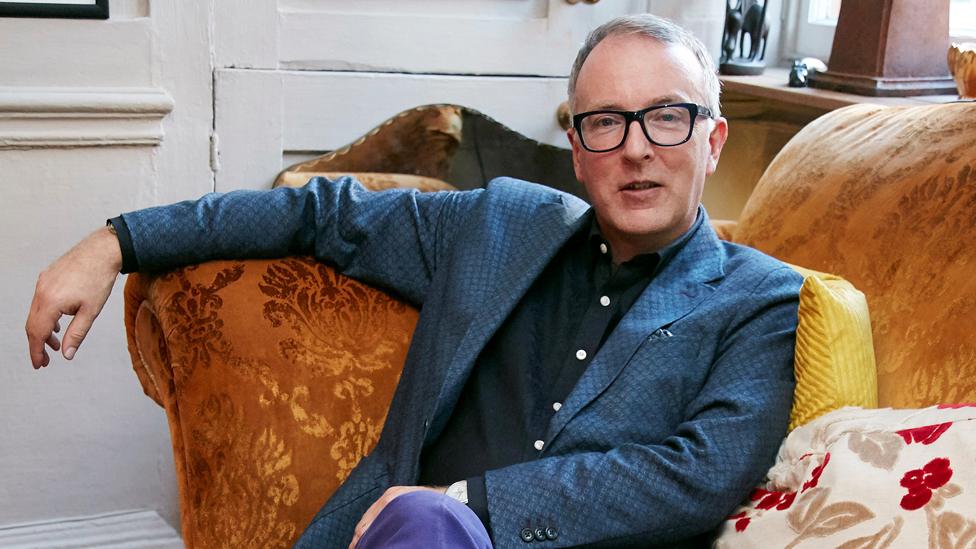
Simon Carter had initially intended to pursue a career in medicine
It could have been a completely different life story for menswear designer Simon Carter if he had been able to follow his first choice of career path.
"I wanted to be a doctor, but I didn't get the grades," he says.
Instead of being able to study medicine at university in the early 1980s, Mr Carter had to settle for a course in immunology - the study of the immune system - at a college in London.
And living in the affluent west London area of Chelsea, getting a part-time job at a vintage clothes shop soon inspired him to entirely swap the world of science for a career in the fashion and jewellery industry.
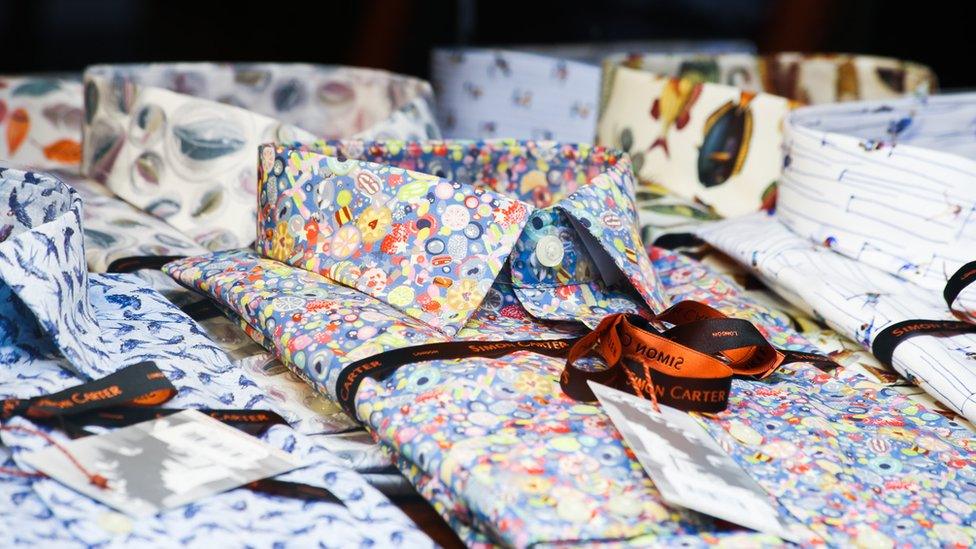
Simon Carter started to sell shirts in the early 1990s
"People used to come in and sell stuff at the shop, and one day a guy was selling motorbike brooches," says Mr Carter.
"I fell in love with one, and my manager said I could have it instead of my day's wages. I got so many compliments, and I thought - what if I sold my own brooches?"
Today Mr Carter's eponymous fashion, jewellery and accessories label enjoys annual global sales of £15m. Best known for its colourful patterned shirts, celebrity fans include UK comedians Paul Merton and Richard Ayoade, and actor Gary Oldman.
It is a far cry from when he started out in 1985, trying to sell his brooches on Chelsea's main King's Road shopping street.
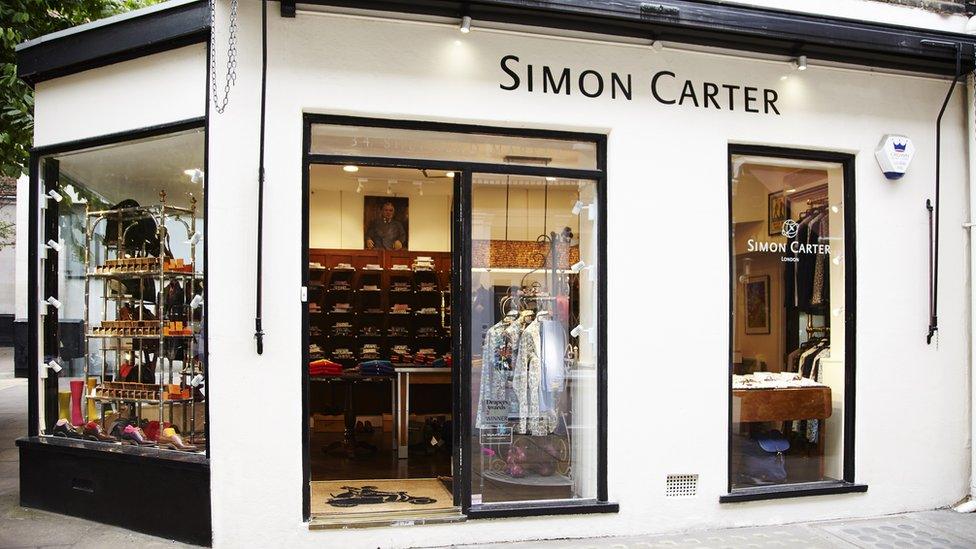
He says that both shops and an internet presence are vital
"I invested my money, had 100 brooches made, and tried to sell them on the King's Road," he says. "I started at one end, and by the time I reached the other end I had no sales.
"Feeling slightly deflated and rejected, I tried one last shop, a high-end jeweller. To my surprise they loved them and bought 50 off me instantly."
But Mr Carter is the first to admit that it was more of a hobby back then. "If you told me I'd have a global business empire 30 years down the line I never would have believed you."
Yet the hobby quickly turned into a successful business, and within a few years he was being stocked by upmarket department stores including Harrods and Selfridges.
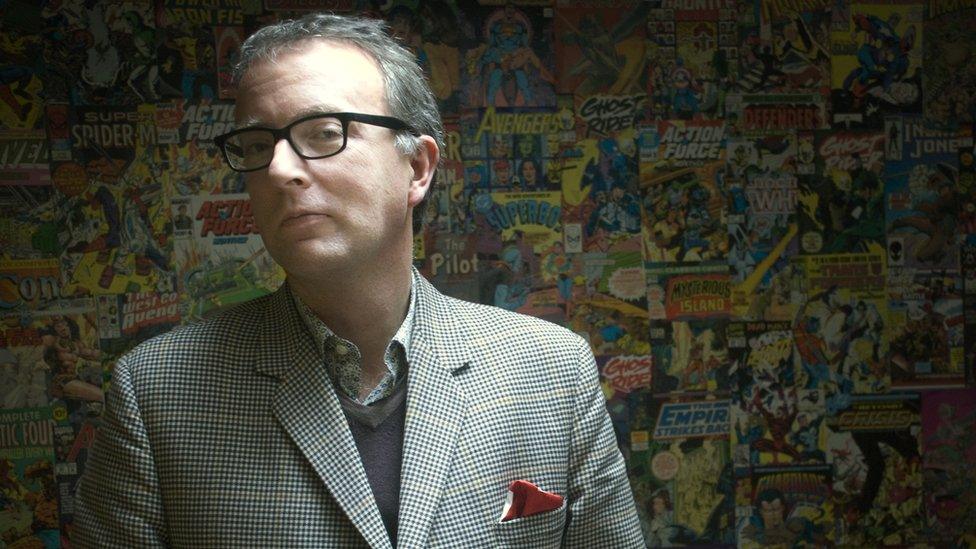
Simon Carter relies on others to do the administrative work
"Starting a business back then was easier," he says. "You could just go into a shop and get in front of the right people straight away.
"It's impossible today, you couldn't start a business today the way I did back then. If shops have never heard of you, then they probably won't even take a chance on you."
Branching out over the years to first cufflinks, and then shirts, suits, jackets and shoes, the business now has 25 employees.
"In the early days I knew what my main skill was, [being] out there selling my products," says Mr Carter. "So gradually I employed other people to do the administrative and financial sides for me.

Any retail store has to work hard to please customers, Simon Carter says
"You need to know your strengths and weaknesses when it comes to business. But I must be doing something right, if I've kept some of the same staff for 30 years."
Today Mr Carter is still the face of the London-based business, networking for his brand. He also mentors up-and-coming fashion designers.
In addition to concessions in department stores, Simon Carter has nine stores of its own, four in London, one in Brighton, one in Johannesburg, and three that recently opened in India.
It is also increasingly selling around the world via its website, with online sales now accounting for 20% of the firm's turnover.
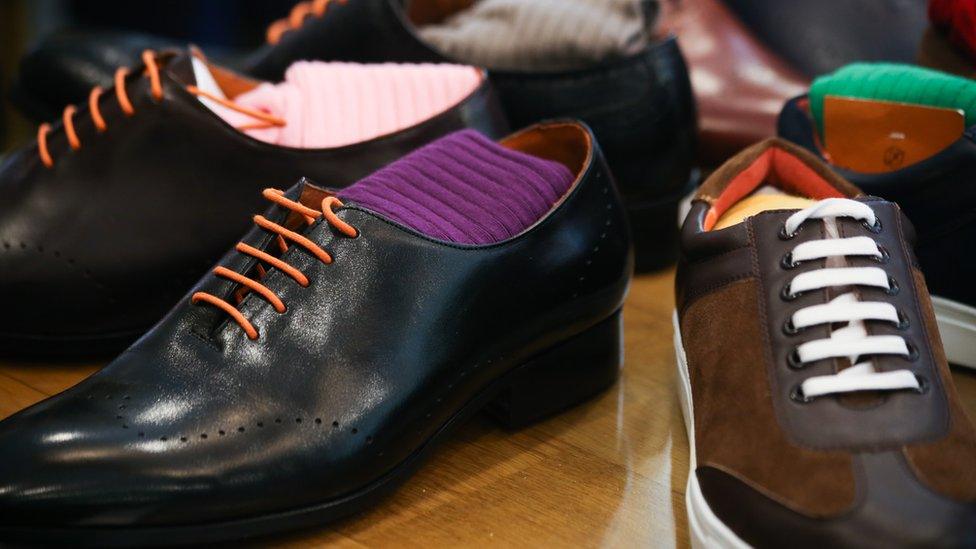
Simon Carter now also sells footwear
"While I firmly believe in the power of the High Street, I also know that online is key too," says Mr Carter. "I had a fully transactional website very early on, and know how important social media is for brands.
"I love the High Street and my shops, but bricks and mortar need to have an experience element if they're to survive.
"So, for us it means employing managers with great personalities, having shops with interesting antiques and artworks, while giving our customers a more personal service, and telling them the narrative behind the product.
"You need to offer customers something they just can't get online."
Fashion presenter and stylist Sarah Mulindwa says Mr Carter deserves particular praise for expanding into India in recent years, via a tie-up with India's largest luxury retailer, The Collective.

More The Boss features, which every week profile a different business leader from around the world:

"British designers, once successful, [typically] look to expand into China and the US," she says.
"However, Simon has expanded into India, and has implemented Indian design and culture into his collections. It is a clever way to develop loyal customers who value his designs and company ideas."
Despite the expansion into new markets, Mr Carter says he has always built the business organically.
"We never took any outside investment," he says. "Maybe that is why I'm not a huge name, or maybe that's why I'm still here? I like the level of freedom and control it's given me."
Although he admits that there have been some tough times along the way, especially during the global financial crisis of 2008, he says the business has grown over the past five years.
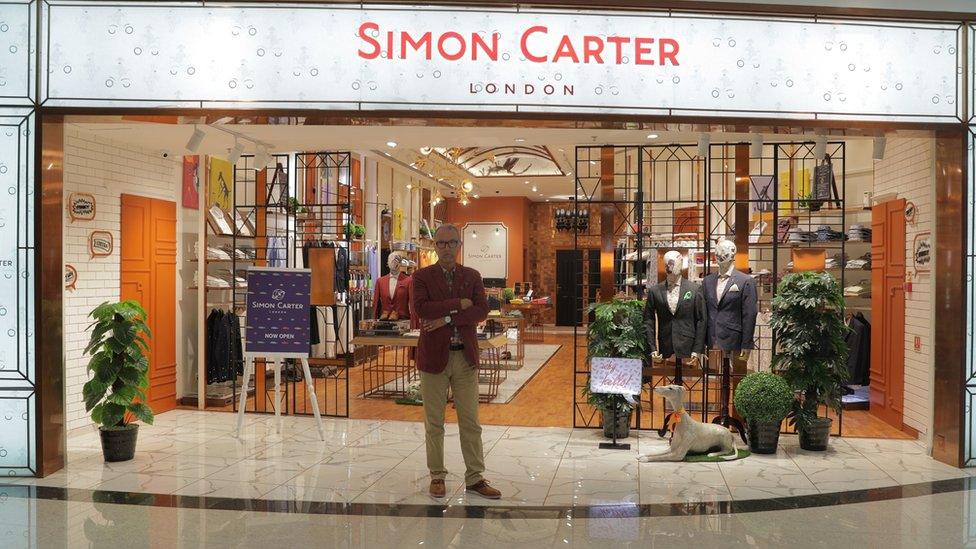
The company recently expanded into India
One person who has made a big impact on the company is Mr Carter's ex-wife, who remains financial director.
After coming out a few years ago, he now lives with his husband Derek in London.
"My wife at the time made it an easy transition for me, and I'm still great friends with her, which is lucky, as we make a lot of important decisions together about the business," he says.
Business aside, Mr Carter admires two people in the public eye when it comes to fashion - fellow UK designer Paul Smith, and Prince Charles.
"With Charles it's not about fashion it's about style, and he's always had his own unique style, whether it is fashion or not. And I admire him for that."